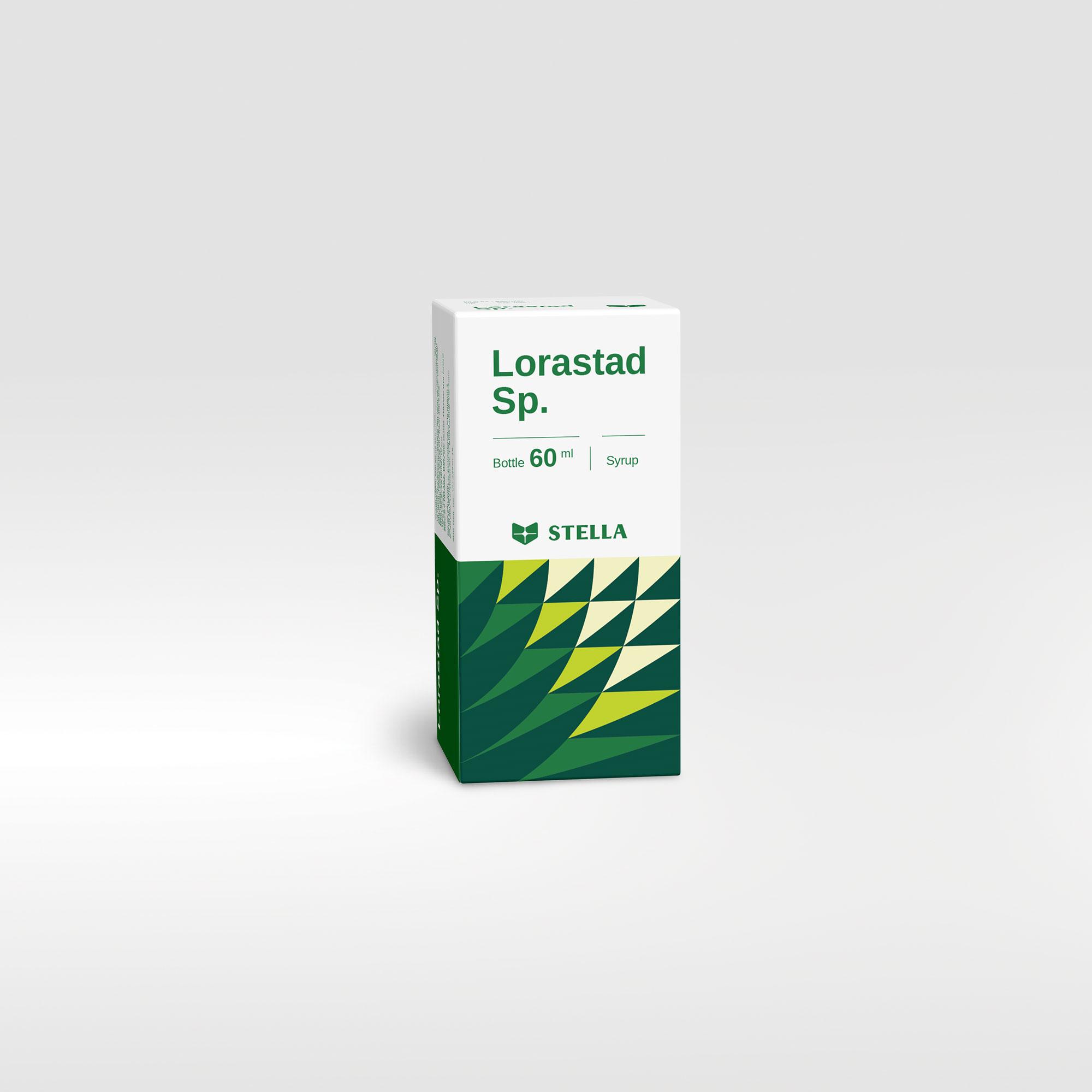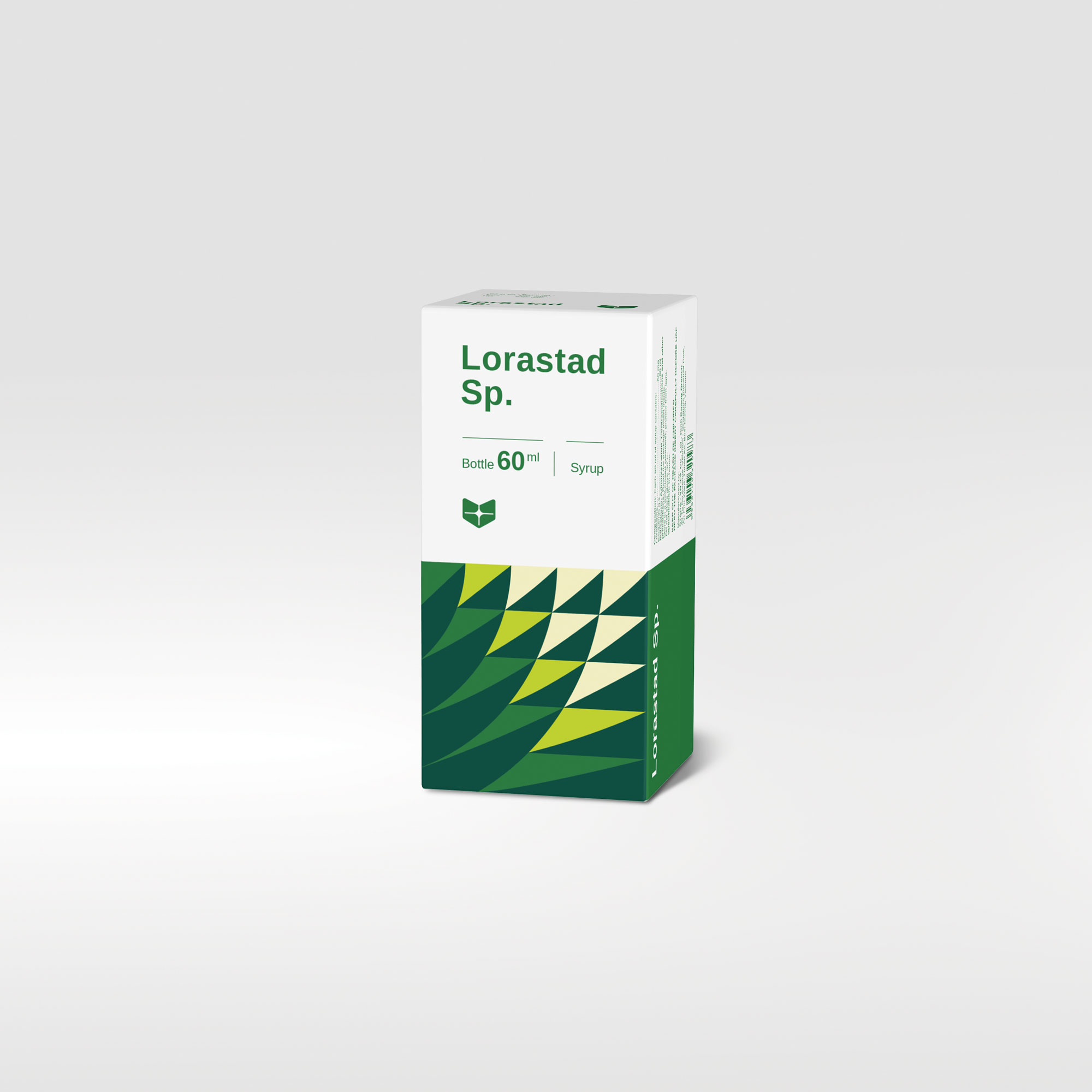Lorastad Sp. OTC
Lorastad Sp. contains loratadine is a potent long-acting tricyclic antihistamine with selective peripheral H1– receptor antagonistic activity.
| Pack size | Bottle of 60 ml, 100 ml |
| Shelf-life | 36 months |
| Composition | Loratadine |
| Dosage forms and strengths | Syrup: 1 mg loratadine in 1 ml syrup |
Product code :













